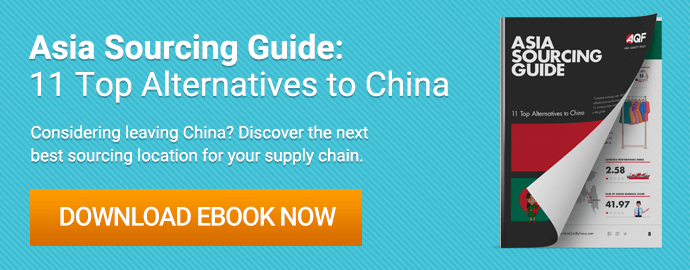There are alot of moving parts to keep track of when relocating your business. On top of the day-to-day logistical challenges, you also have to rethink your supply chain and possibly find a new supplier and factory to work with.
Factory audits play an important role in selecting a new supplier. They can help you verify a supplier’s capabilities, experience, licenses & certifications, and the working conditions in the factory. In this blog post, we will explore the why and how behind factory audits and explain how you can use them to verify new suppliers.
Why Do Small Brands Need Factory Audits?
Factory audits are important to brands of all sizes- no matter how large or small. Here are three reasons why small brands need to conduct these audits:
1. Quality Control To Build Trust and Loyalty
Subpar or dangerous products can ruin your brand's reputation. Small brands can't afford to have their name dragged through the mud, so it helps to only work with suppliers who consistently produce high-quality goods.
2. Productivity To Ensure They Can Fulfill Order Requests on Time
Supply chain logistics are challenging enough without having to worry about whether your supplier will be able to meet your demands. A factory audit can give you a good idea of a supplier's productive capacity so that you can plan accordingly.
3. Regulatory Compliance To Ensure They Don't Get Shut Down
Rules and regulations govern the manufacturing process, and your supplier must comply. A factory audit can help you verify that your supplier is up to date on all the latest regulations.

Why Do Big Brands Still Need Factory Audits?
Big brands and small brands differ in many ways, but one area where they're similar is the need for factory audits. Here are three reasons why big brands still need to conduct these audits:
1. Social Compliance To Protect Brand Reputation
A supplier's social compliance entails labor rights, working hours, and health and safety conditions. Poor social compliance can lead to public relations disasters for big brands.
2. Environmental Compliance To Align With Company Goals
Many big brands have made commitments to reduce their environmental impact. As such, they need to partner with suppliers also committed to sustainability.
3. Compliance With International Regulations
With new laws and regulations being put in place across the EU, brands and retailers need to take precautionary measures to ensure they are in compliance. Some of the most recent laws put in place include the following:
- The German Supply Chain Act - This law intends to provide stronger human rights protections. It required companies to set up grievance mechanisms and report on their activities.
- The UK Environment Act - This act intends to create better environmental protection laws. It gives governments the power to set new binding targets, including for air quality, water, biodiversity, and waste reduction
- The Anti-waste and Circular Economy (AGEC) - This is a set of regulations that govern how manufacturers can dispose of waste materials. It's a French institution, but the European Union follows similar regulations.

What Are the Four Common Audits?
It’s important to make sure your suppliers are reliable and capable before integrating them into your supply chain. The following are four of the most common audits that importers use to verify their supplier’s policies and capabilities. The exact type of audit you require will depend on your product and the problem you are attempting to solve.
1.Factory Audit
This audit assesses whether a supplier is capable of consistently producing goods per your requirements. It looks at factors like the supplier's production process, raw materials, and finished products.
2. Social Audit
This audit assesses a supplier's compliance with social and ethical standards. It screens factors like labor rights, working hours, and health and safety conditions.
3. Environmental Audit
This audit interrogates a supplier's compliance with environmental standards. It scrutinizes the supplier's emissions, waste management, and energy use.
4. C-TPAT Audit
The Customs-Trade Partnership Against Terrorism (C-TPAT) is a voluntary program that helps to ensure the security of the global supply chain. To participate in the program, suppliers must meet the given standards that are only verifiable through factory audits.
Supplier Audit and Quality Control
Factory Audits should be part of any quality control program to minimize risks and improve supply chain performance. An extensive factory audit is frequently used to evaluate potential new suppliers and monitor regular suppliers. It vets your vendor’s capability to fulfill your orders in the desired quantity, meet your quality objectives, and comply with timeframes.
AQF’s audit checklist includes over 100 checkpoints, with your specific requirements. AQF auditors can also provide you with a detailed technical audit corrective action plan to assist with smooth implementation of any necessary improvements. Contact us to learn more about how supplier audits support your supply chain, or sign up for AQF Online and book your next service today.








